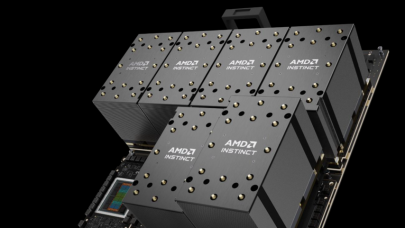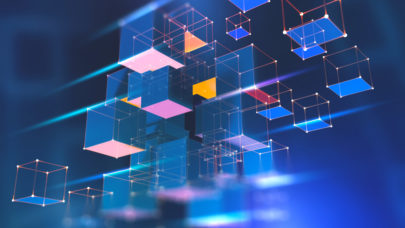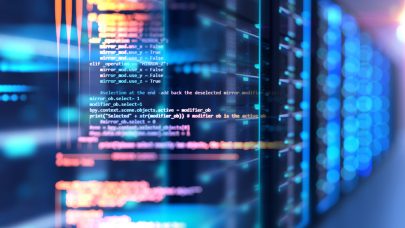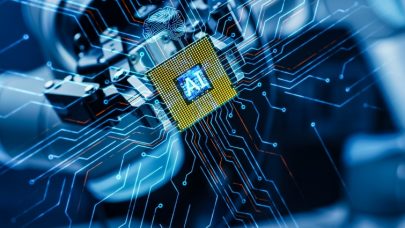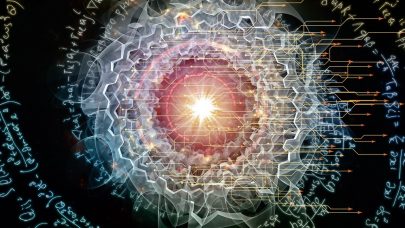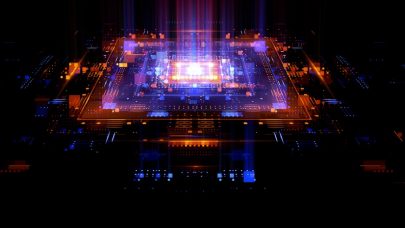LOS ALAMITOS, Calif., Jan. 11, 2024 — Leaders of the IEEE Computer Society (CS), the foremost computer science and engineering member community, today announced their 2024 technology predictions, with generative AI applications topping the list as the technology predicted to experience the most advancement, largest market adoption; managing misinformation is predicted to experience the greatest market maturity, while remote healthcare is expected to have the most impact on humanity.
 “Given today’s intense focus on AI, we expect to see a lot of growth this year, in the form of new AI driven research and development efforts and industry solutions,” said Dejan Milojicic, IEEE CS Technology Predictions Committee chair, 2014 IEEE CS President, and current HPE Fellow and VP at Hewlett Packard Labs. “We ranked generative AI applications and next-gen AI as the two most advanced technologies, and AI substantially enables nearly all other technologies on the list. Compared to last year, the largest AI benefits are advances in cybersecurity and managing misinformation.”
“Given today’s intense focus on AI, we expect to see a lot of growth this year, in the form of new AI driven research and development efforts and industry solutions,” said Dejan Milojicic, IEEE CS Technology Predictions Committee chair, 2014 IEEE CS President, and current HPE Fellow and VP at Hewlett Packard Labs. “We ranked generative AI applications and next-gen AI as the two most advanced technologies, and AI substantially enables nearly all other technologies on the list. Compared to last year, the largest AI benefits are advances in cybersecurity and managing misinformation.”
Technology Predictions
With computer science and engineering fueling some of today’s most advanced technological discoveries, the IEEE CS Technology Predictions Committee focused on 21 emerging technologies on which to base their predictions. The committee judged each of these technologies on anticipated 2024 metrics, including potential technology development success; impact to humanity; technological maturity, and market adoption. Each technology received a letter grade using a U.S.-based educational evaluation scale, with A serving as excellent, C as average, and D as low potential in the coming year. The results included:
- Generative AI Applications (A/B): Generative AI use will increase with rapidly expanding efficiency and new applications and services both beneficial and detrimental. Ethical and societal issues will continue to rise. Expect strong short-term impacts on business, education and society.
- Next Generation AI (B+): The evolving advancements and developments in the field of artificial intelligence that push the boundaries beyond current capabilities. It is the next generation of Artificial Intelligence (AI) that is expected to be more advanced and sophisticated than the current AI systems.
- Advances in Cybersecurity (B): Cybersecurity advances will enhance public confidence and will enable reliance on the cyber infrastructure for large scale applications including energy production and distribution.
- Managing Misinformation (B): AI deepfakes (text, audio, visual) will become regular tools that will require careful management.
- Remote Healthcare (B): Monitoring sensors and system-level data integration will enable patients to obtain remote medical assistance, physicians to improve diagnosis and treatment, optimal utilization of individuals’ medical history, and efficient health care delivery protocols.
- Digital Twins for Vertical Applications (B): These applications will advance state of the art of predictions, what-if-analysis and oversight in a number of industries, such as data centers, medicine, geo-physical hazards, manufacturing, agriculture, transportation, and many others.
- New 3D Printing Applications (B): These will evolve towards customized and automated solutions in many domains.
- New Programming Models (B-): Advances in AI, broader adoption of script-based languages, and further digital transformation into non-programmers’ world will further increase ease of development and require new programming models and DevOps, such as serverless, from the Edge to Cloud.
- Reliability (B-): This topic will emerge as a major concern in a widespread set of application fields.
- Autonomic Autonomous and Hybrid Systems (B-): These systems will see increased development and adoption in areas, such as driving, laboratory work, agriculture, and many others.
- Distributed Energy Resources for Powering Data Centers (B-): Engaging renewable energy based on distributed energy resources for powering data centers will have a high impact on clean energy requirements for data centers.
- Sustainable ICT (B-): Sustainable ICT will evolve by designing, manufacturing, using, and disposing of electronic systems efficiently and effectively for new use cases, with minimal or no impact on the environment.
- Regenerative AgriTech (B/C): As a holistic, circular approach to farming that strives to improve the health of agroecosystems and the natural ecosystems that support them, regenerative AgriTech will rise in importance.
- Non-Terrestrial-Networks (B/C): Satellites and high-altitude platforms (HAPs) will expand and augment the capabilities of terrestrial networks (TN) involving wireless and cabled communications in the quest to connect everything to everything (E2E) in real time (RT).
- New Battery Chemistry and Architecture (B/C): This evolution will replace Lithium and will make it possible to make batteries that are cheaper and more sustainable.
- Low Power AI Accelerators (B/C): This technology will provide key-components for practical, compact, cost-effective, long-term reliable computation units for Self-driving vehicles and AI robots, data-centers, LLM, systems, smart phones, games.
- Alternate Materials for Electro Machines (EV motors) (C+): Inadequate raw materials for conventional high-performance electro machines motivates discovery and engineering.
- Cost Effective Recycling of Batteries (e.g. Lithium) (C+): Recovering materials for reuse will reduce the need for mining and increase the general sustainability of battery technology.
- Metaverse (C+): The metaverse will bridge the gap between the real and the digital worlds, by solving real world industrial problems digitally.
- Accessible Quantum Computing (C-): This technology will improve public understanding and access to the power of quantum computing, increasing ‘conventional’ computing efficacy exponentially.
- Satellite (Constellation) Recycling (C/D): This initiative will enable circular economy in space ensuring long term sustainability. We expect an initial success in 2024 with increasing awareness of the tremendous impact on Humanity.
“As the leading community for computer science and engineering, IEEE CS puts forth these predictions annually to help both inform and inspire the industry on their quest for what’s next,” said Jyotika Athavale, 2024 IEEE CS President. “Computing is foundational for almost every industry, so the majority of today’s most anticipated solutions stem from the work of computer scientists and engineers. By gathering thought leaders for their input, we both set the course for discovery and support the vision of the community.”
Key Technology Observations
From these 21 predictions, the Technology Predictions Committee recognized three megatrends which grouped advancements into the categories of artificial general intelligence, digital transformation, and sustainability. From those insights, the IEEE Future Directions Committee will be issuing an upcoming report to explore the broader landscape being shaped by these megatrends in computer science and engineering.
In addition, based on the current state-of-the-art in a particular technology, the Technology Predictions Committee identified where academia, government, professional organizations, and industry come into play, specifically calling on these organizations to advance solutions in the following ways:
- Academia: With more nascent technologies, academia offers the potential to explore new ways of thinking and innovations. Trends including regenerative AgriTech, alternate materials for electro machines (EV motors), non-terrestrial networks, satellite (constellation) recycling, and accessible quantum computing speak to advances that may gain traction in the future and will benefit from fundamental research today.
- Governments: As technology scales, but needs resources and societal guardrails, global governments offer opportunities in the form of funding and appropriate regulation. Research around digital twins for vertical applications, next-gen AI, remote healthcare, and autonomic, autonomous, and hybrid systems will benefit from government support.
- Professional organizations: Assembling the development community, professional organizations create possibilities for the facilitation of standards, roadmaps, and future directions. Solutions that need broader industry input and agreement, like reliability, cost-effective recycling of batteries (e.g., lithium), new battery chemistry and architecture, and the metaverse, create opportunities for professional organizations to facilitate dialogue.
- Industry: Delivering technology solutions to market, the industry at large thrives in developing new inventions, productizing concepts, and spurring on new markets. Generative AI applications, managing misinformation, advances in cybersecurity, and new 3D printing applications fall into this category.
“Today’s technology landscape requires collaboration from all stakeholders,” summed up Milojicic. “We see these predictions as a rallying cry for each area of the market to come together to advance a collective vision for these new technologies to better serve humanity.”
Technology Prediction Committee
Growing to a diverse team of 46, this year’s IEEE Technology Predictions Committee included: Ali Abedi, Mohamed Amin, Cherif Amirat, 2024 IEEE CS President Jyotika Athavale, Rosa M Badia, Mary Baker, Greg Byrd, Mercy Chelangat, 2024 IEEE President Tom Coughlin, Izzat El Hajj, Paolo Faraboschi, Nicola Ferrier, Eitan Frachtenberg, 2017 IEEE CS President Jean Luc Gaudiot, Ada Gavrilovska, Alfredo Goldman, Vincent Kaabunga, 2018 IEEE CS President Hironori Kasahara, Witold Kinsner, Danny Lange, Phil Laplante, Avi Mendelson, Cecilia Metra, Dejan Milojicic (chair), Puneet Mishra, Chris Miyachi, Khaled Mokhtar, Chengappa Munjandira, Bob Parro, 2023 IEEE CS President Nita Patel, Alexandra Posoldova, Farzin Shadpour, Marina Ruggieri, Sohaib Qamar Sheikh, Tomy Sebastian, Saurabh Sinha, Vesna Sossi, Luka Strezoski, Vladimir Terzija, Michelle Tubb, Gordana Velikic, John Verboncoeur, Irene Pazos Viana, Jeff Voas, Rod Waterhouse, and Gerd Zellweger. Please note that the statements expressed in this report do not represent the opinions of the authors’ employers.
For over a decade, IEEE CS has been recognized as both a pioneer and leader in providing annual technology predictions. Last year’s predictions were featured in Computer magazine’s July 2023 issue and this year’s are driving a subsequent report from the IEEE Future Directions Committee as well as influencing an upcoming feature issue of Computer magazine in July 2024. At the close of 2024, the IEEE CS technical contributors for this report will review the accuracy of the predictions and determine how closely they align with the current landscape. Check back in December 2024 to access the official scorecard of this year’s forecast and watch for the IEEE Future Directions Committee’s megatrends report in the coming weeks.
About the IEEE Computer Society
Engaging computer engineers, scientists, academia, and industry professionals from all areas and levels of computing, the IEEE Computer Society (CS) serves as the world’s largest and most established professional organization of its type. IEEE CS sets the standard for the education and engagement that fuels continued global technological advancement. Through conferences, publications, and programs that inspire dialogue, debate, and collaboration, IEEE CS empowers, shapes, and guides the future of not only its 375,000+ community members, but the greater industry, enabling new opportunities to better serve our world. Visit computer.org for more information.
Source: IEEE Computer Society
































